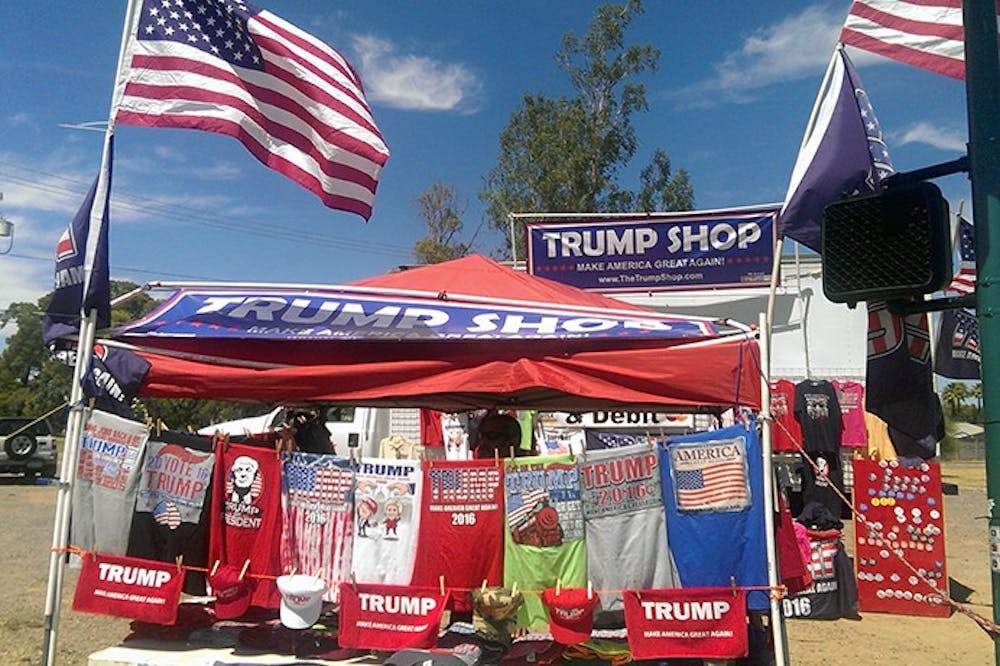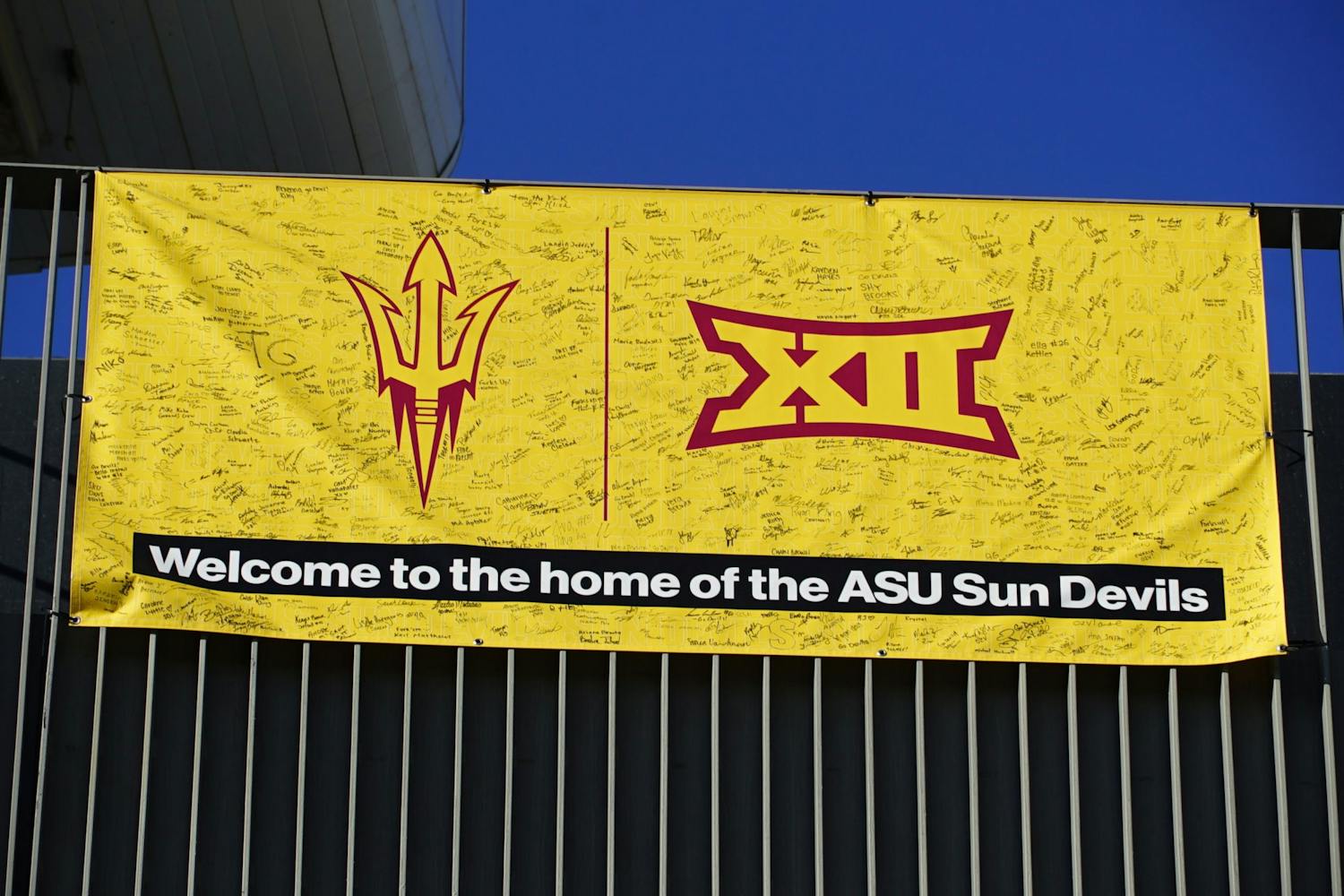Arizona, a by-and-large consistently conservative state, could be getting a political makeover in the next election.
It would be quite the deviation from the norm: the state hasn't voted for a Democratic president since Bill Clinton in 1996, and has only gotten more steadfastly conservative during the Obama administration. In the 2012 presidential election, Mitt Romney beat out the incumbent Obama by nearly 10 percent, a moderate but convincing figure.
However, this election looks different — the presumptive GOP candidate Donald Trump polarizes members of his own party, and at the same time has the potential to galvanize Arizona's Hispanic voters, a mostly liberal large chunk of the voting-age population that historically lies dormant at the ballot box.
"I think (Arizona going Democrat) is a reasonable possibility," said Arizona State University political science lecturer and policy advocate David Wells. "The Republican party is not unified behind Trump, and when that happens, you lose. He won't do well in November."
He said a variety of other factors are at play as well: Mormon voters, who make up six percent of the state's population, generally do not support Trump, despite being solidly conservative. At the same time, Trump's rhetoric toward Hispanics and his proposal for an anti-immigration policy may motivate more to vote in the election.
"Something like 8-out-of-10 Hispanic voters look unfavorably on Trump," he said. "And, since it's a presidential election, more people in general will turn out to vote."

Other causes like getting recreational marijuana legalized in the state, filling the Supreme Court vacancy and passing gun control legislation have the potential to rally Democratic voters around their candidate.
Young people and college students, also traditionally liberal groups, also have the potential to change the tides this election, Wells said, but they need to turn out to vote.
"Liberal students tended to support Bernie Sanders, so the question is whether that will translate to support for Hillary," he said.
However, a Democratic victory in Arizona would be more of an unusual election-driven aberration than the beginning of a trend, Wells said. Republicans still have a monopoly on local government positions, and the chances of liberal groups turning out in such high numbers in smaller elections are slim. However, in eight to ten years, he said the state could be consistently purple.
Despite unfavorable demographics, the Republican establishment is unconvinced by claims of Arizona going Democratic in the next election.
"We were hearing the same story in 2010, 2012 and 2014," said Tim Sifert, the communications director at the Arizona Republican Party. "This idea that changing demographics is going to cause political change is ridiculous. It's pure conjecture."
Sifert points to Republican majorities in the legislature and control over most other state positions as evidence against claims of pending Democratic victory. He also denies that Trump could drive Republicans away from their party.
"The Republican nominee is a fantastic nominee," he said. "More Republicans will vote for him than any other candidate in history."
Moreover, he said it's unwise to assume Hispanics will unilaterally support the Democratic party.
"Hillary Clinton is not Hispanic, and neither is Bernie Sanders."

That said, the idea that the state could vote blue in the election does have solid support.
"Without a doubt, 2016 is potentially a fantastic year to go blue," said ASU Young Democrats president Austin Marshall. "Trump is unpopular with pretty much everyone — minorities, women, young people. And those are the people who are getting more and more voting power."
He said Republican Arizona Senator John McCain's decision to stand by Trump could even help garner support for his Democratic opponent Ann Kirkpatrick, who is running an uncommonly strong campaign for a Democratic senator in Arizona.
Marshall is not worried about staunch Bernie Sanders supporters and more radical liberal voters — a good portion of voting students — detracting from votes for the Democratic candidate.
And, unlike Wells, he's convinced that a 2016 democratic victory in Arizona would be the beginning of blue dominance in the state.
"The excitement from the primaries will carry over," he said. "Knowing that something has to be done to stop Trump will motivate young people to vote. Millennials are a massive voting bloc, they just have to vote. We'll never go back to the status quo."
Reach the reporter at Arren.Kimbel-Sannit@asu.edu or follow @akimbelsannit on Twitter.
Like The State Press on Facebook and follow @statepress on Twitter.




